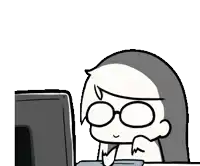
GuidanceIf you want to translate into another language, please use the translate feature in your browser.

The Two Hours That Weren’t the Same
The first hour:
You’re lying on your bed, staring at the ceiling. The fan hums in slow, lazy circles. You check your phone — only three minutes have passed. You sigh, roll over, and watch the shadows on the wall stretch like they’re in no hurry to be anywhere. Every second feels like it’s dragging its feet.
The second hour:
You’re deep into a book you’ve been meaning to read. The world outside dissolves. You’re laughing at a clever line, leaning forward at a tense moment, flipping pages like they’re oxygen. Then you glance at the clock — and somehow, the hour is gone.
Same sixty minutes. Completely different lives.
It’s a strange paradox: when we’re idle, time seems to crawl. But when we’re absorbed in something we enjoy, it slips through our fingers like sand. This isn’t just a poetic observation — it’s a well-documented psychological phenomenon.

A Personal Glimpse
One Sunday afternoon, I sat on the couch with nothing to do. The clock seemed to mock me, its hands dragging forward. Later that same day, I picked up a hobby project I’d been meaning to finish. I looked up, and somehow three hours had passed without me noticing.
The day hadn’t changed. The clock hadn’t sped up. But my perception of time had.
The Psychology of Time Perception
-
Attention and Absorption
When we’re deeply engaged in an activity — reading, gaming, painting, cooking — our attention narrows. We stop monitoring the clock, so time feels compressed. -
Flow State
Psychologist Mihaly Csikszentmihalyi described flow as a state of complete immersion in a task. In flow, self-consciousness fades, and time distortion is common. -
Boredom’s Stretch
When we’re unoccupied, our attention turns inward. We notice every tick of the clock, making time feel slower. -
Emotional Valence
Positive emotions tend to make time feel faster; negative or neutral emotions slow it down.
Why Enjoyment Feels Shorter
Enjoyable activities create a high density of meaningful moments. Our brains process these moments efficiently, so in hindsight, the period feels shorter. In contrast, boredom creates fewer “memorable” events, making the stretch feel longer in memory.
Analogy: The Highway vs. the Dirt Road
Imagine driving on a smooth highway — you cover a lot of distance quickly without noticing each bump. That’s time during enjoyable activities.
Now imagine crawling along a bumpy dirt road — every jolt and turn is felt. That’s time during boredom.

How to Make Time Feel Fuller
- Be Present — Even in enjoyable moments, pause to notice details.
- Break Monotony — Add variety to your day to create more “time markers.”
- Balance Activity and Rest — Too much of either can distort time in ways that feel unsatisfying.
- Reflect — Journaling or recapping your day can make it feel richer in memory.
Closing Reflection
“We can’t slow the clock, but we can slow ourselves enough to notice the moments worth keeping.”
Free time isn’t just about having hours to spare — it’s about how we fill them. When we understand why joy feels fleeting and boredom feels endless, we can choose to shape our days with intention, making every hour feel like it matters.

